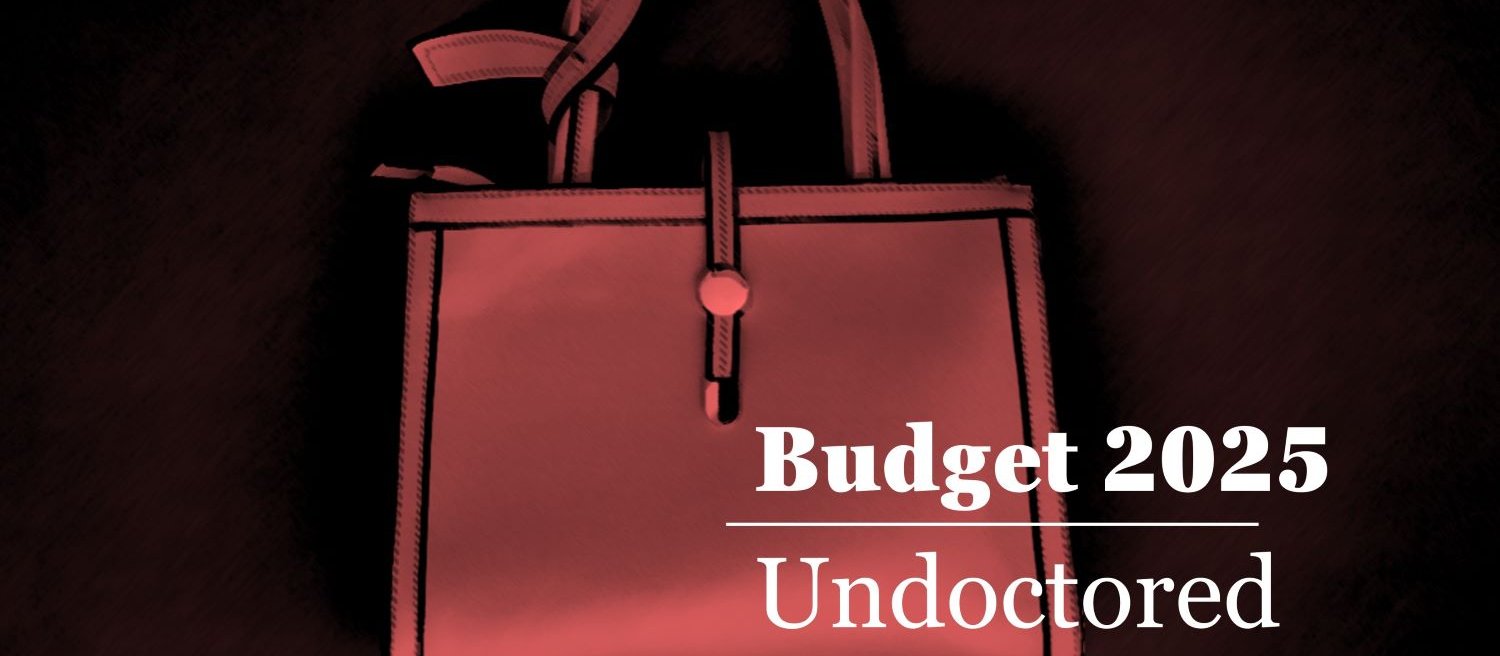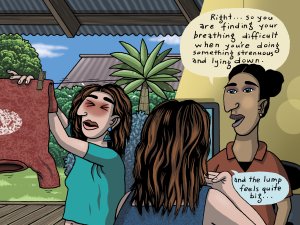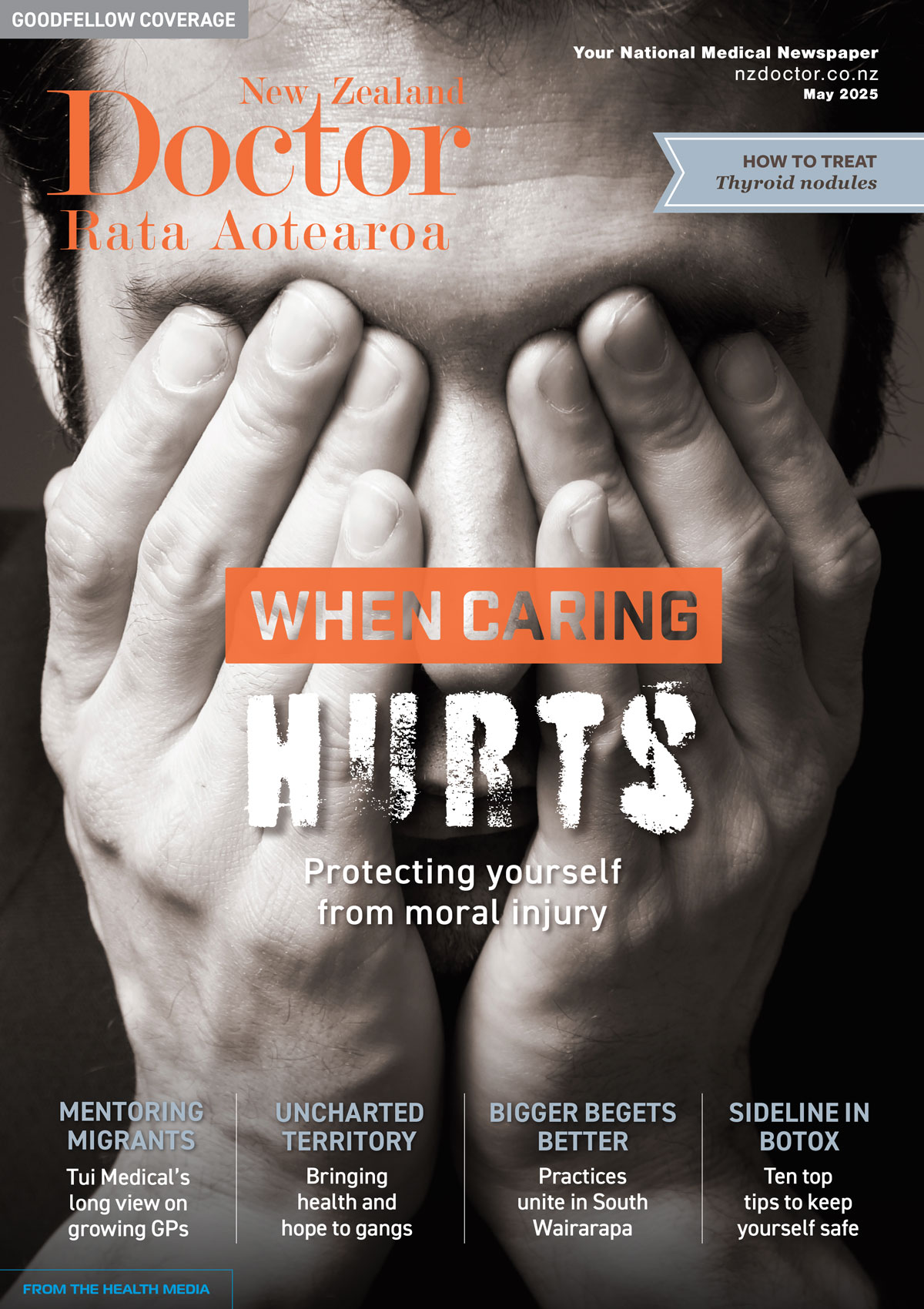Otolaryngologist, head and neck surgeon Francis T. Hall discusses the evaluation of thyroid nodules, which primarily aims to determine the likelihood of malignancy. He then reviews the treatment of thyroid nodules and thyroid cancer, including recent advances in management
BUDGET 2025: Te Tiratū Iwi Māori Partnership Board: Uncompromising call to Govt on Budget 2025
BUDGET 2025: Te Tiratū Iwi Māori Partnership Board: Uncompromising call to Govt on Budget 2025

The Te Tiratū Iwi Māori Partnership Board, the statutory voice for 114,000 whānau Māori across the central North Island, is issuing an uncompromising call to the Government: make Budget 2025 a decisive turning point so the health system is timely and accessible.
The Board is calling for urgent action and bold direct investment in Māori-led, community-based health services — warning that failure to do so will mean continued whānau premature death from preventative disease, entrenched hardship and inequity across the rohe.
Board co-chair Hagen Tautari said, “We hear it from our people every day — the system is not meeting the needs of our whānau who top the table in terms of mortality and morbidity statistics.”
He acknowledged steady progress in key service areas — particularly newborn enrolment, early intervention, and screening coverage across the Tainui Waka rohe. However, he stressed that falling immunisation rates and long specialist wait times now demand urgent attention.
“Whānau are waiting months — even years — for essential care. Many needing to access services beyond a GP clinic are forced to travel vast distances, bear unaffordable costs, or give up altogether because the system isn’t designed for them — culturally, practically, or equitably. It’s not just unjust — it’s deadly. This failure is costing lives.”
Evidence from Whānau Voice surveys, the Board’s monitoring mechanism on Te Whatu Ora Health New Zealand reveals that Māori communities across the Te Tiratū region — spanning from Waikato to Hauraki, from Te Kuiti to Kawhia and especially the surrounding rural settlements — continue to face persistent, systemic failures in accessing even basic health care.
“Since June 2023, I’ve been on a waitlist for gallbladder surgery. This one condition is stopping me from getting back to work,” said one Tokoroa-based whānau. “My partner needed someone to talk to. There was no mental health support for him. Nothing,” shared another. “As a teacher here in Tokoroa, I don’t think there’s enough on offer for our tamariki in terms of mental health.”
Tautari believes these stories are not isolated — they are representative of widespread experiences shared by whānau across the rohe that are leaving them frustrated, overlooked and unsure on where to get help.
Even the government’s recent pre-announcement of a funding boosts for 24-hour urgent care in selected locations, Ōpōtiki—part of the Te Manawa Taki region where Te Tiratū operates—was overlooked despite having a clear need and geographic isolation. As a result, the lack of accessible services continues to place whānau lives at risk.
The resounding call from the flaxroots is clear: more GPs, more specialists, shorter wait times, and longer appointments. “We need to be able to see a doctor the same day — not in two weeks. You could be dead by then,” said whānau from rural Waikato.
Whānau in the Te Tiratū catchment compared to the general population continue to face higher rates of cancer, diabetes, mental health conditions, and preventable illnesses — with poorer outcomes and shorter life expectancies.
These outcomes are worsened by the current service delivery experience:
- Surgery and specialist waitlists stretching months to multiple years
- Lack of local mental health support especially for tāne and rangatahi
- Shortages of GPs and specialists in rural and coastal communities
- Disjointed services that are not designed to reflect Māori cultural values, realities, or aspirations
From rural towns like Putāruru and Mangakino to coastal Ōpōtiki, many whānau struggle to access timely, affordable, and culturally safe health care. Services are stretched, under-resourced, and often located far from where whānau live.
- Teachers in Tokoroa are concerned about the lack of mental health services for students even though suicide rates for rangatahi are among the highest globally, and tamariki are more likely to experience barriers to accessing mental health services.
- Te Whatu Ora data for the Te Tiratū region indicates more whānau are now waiting over 4 months for their first specialist appointment. Delays in accessing timely care especially for rural and remote areas is worsening the health conditions for whānau and eroding their trust in the system. As a result, many are disengaging entirely — avoiding the very services meant to support them.
- In the western Bay of Plenty, whānau report long waits for referrals and specialist treatment in Hamilton, often delayed by transport, time off work, or simply unaffordable travel.
“Referrals wait times are really long!” said whānau. “We need doctors full-time — the same doctor, not locums that come and go,” said another.
Many reported being bounced between services, without follow-up, clarity, or support. “We’re constantly referred elsewhere. No one checks in. The system is disconnected, and people as a result fall through the cracks.”
This crisis is not new. Back in 2019 the Waitangi Tribunal released its Hauora Report on WAI 2575 matters that was further supported by the historic Sapere Report that calculated a $531 million longstanding underfunding experienced by Māori providers which still has not been addressed and compounding – six years later.
While Te Tiratū waits for the official details of the Budget 2025 commitments— such as a proportion of the allocated $6.8 billion capital spend on health and what the $190 million Social Investment Fund entails— there is no assurance that these will reach Māori communities unless targeted, ringfenced, and co-designed.
Te Tiratū urges the Government to:
- Deliver dedicated investment into kaupapa Māori and whānau-centred health models
- Address workforce shortages in GPs, mental health specialists, and kaiārahi/navigators across the rohe
- Guarantee equitable access to timely mental health care care for tamariki, rangatahi and tāne
- Uphold Te Tiriti o Waitangi in health system governance and decision-making
“What works for our whānau already exists. We just need the government to invest in it — as Māori-led care can deliver,” said Tipa Mahuta, co-chair of Te Tiratū Iwi Māori Partnership Board.
A local initiative already making a measurable difference is a community outreach pilot launched by BreastScreen Aotearoa, in partnership with Hauraki PHO, to connect under-screened wāhine through hospital and community pathways.
Te Tiratū Iwi Māori Partnership Board believe whānau Māori across the Tainui waka rohe cannot afford more delays, trade-offs, or one-size-fits-all approaches.
“Equity is not optional — it is a Treaty commitment, and the path forward to sustainable wellbeing. Now is the time for genuine partnership — one that shares power, resources, and responsibility with Māori to achieve oranga for all.”




![New Zealand Doctor Rata Aotearoa editor Barbara Fountain, RNZCGP president elect and Tauranga-based specialist GP Luke Bradford, Ministry of Health clinical chief advisor rural health Helen MacGregor, and Health New Zealand Te Whatu Ora clinical director primary and community care Sarah Clarke [Image: NZD]](/sites/default/files/styles/thumbnail_cropped_100/public/2025-05/1.%20Barbara%20Fountain%2C%20Luke%20Bradford%2C%20Helen%20MacGregor%20and%20Sarah%20Clarke.jpg?itok=091NETXI)
![Ngāti Porou Oranga specialist GP Elina Pekansaari and Te Nikau Hospital specialist in general practice and rural hospital medicine David Short [Image: NZD]](/sites/default/files/styles/thumbnail_cropped_100/public/2025-05/2.%20Elina%20Pekansaari%20and%20David%20Short.jpg?itok=h5XfSBVM)
![Locum specialist GP Margriet Dijkstra and OmniHealth regional operations manager (southern) Patricia Morais-Ross [Image: NZD]](/sites/default/files/styles/thumbnail_cropped_100/public/2025-05/3.%20Margriet%20Dijkstra%20and%20Patricia%20Morais-Ross.jpg?itok=jkrtRfJC)
![Golden Bay dairy farmer and dairy industry health and safety doctoral student Deborah Rhodes, and Golden Bay Community Health specialist GP Rachael Cowie [Image: NZD]](/sites/default/files/styles/thumbnail_cropped_100/public/2025-05/4.%20Deborah%20Rhodes%20and%20Rachael%20Cowie.jpg?itok=oM0_GcJc)
![Hauora Taiwhenua clinical director rural health Jeremy Webber, Australian College of Rural and Remote Medicine president Rod Martin and Observa Care director of business operations Deborah Martin, the wife of Dr Martin [Image: NZD]](/sites/default/files/styles/thumbnail_cropped_100/public/2025-05/5.%20Jeremy%20Webber%2C%20Rod%20Martin%20and%20Deborah%20Martin%2C%20the%20wife%20of%20Dr%20Martin.jpg?itok=P_aGmX_H)
![Spark Health chief executive John Macaskill-Smith and client director Bryan Bunz [Image: NZD]](/sites/default/files/styles/thumbnail_cropped_100/public/2025-05/6.%20John%20Macaskill-Smith%20and%20Bryan%20Bunz.jpg?itok=5yJvVZ0I)
![Associate dean (rural) Kyle Eggleton, third-year medical student Roselle Winter, and second-year pharmacy student Alina Khanal, all from the University of Auckland [Image: NZD]](/sites/default/files/styles/thumbnail_cropped_100/public/2025-05/7.%20Kyle%20Eggleton%2C%20Roselle%20Winter%20and%20Alina%20Khanal.jpg?itok=RQLd3TEs)
![Health New Zealand Te Whatu Ora clinical editor and specialist in general practice and rural hospital medicine Anu Shinnamon, and Whakarongorau chief clinical officer Ruth Large [Image: NZD]](/sites/default/files/styles/thumbnail_cropped_100/public/2025-05/8.%20Anu%20Shinnamon%20and%20Ruth%20Large.jpg?itok=i5TMswY9)
![Te Kahu Hauora Practice specialist GP Jane Laver and Ngāti Kahungunu ki Tāmaki-nui-a-Rua chief operations manager Tania Chamberlain [Image: NZD]](/sites/default/files/styles/thumbnail_cropped_100/public/2025-05/9.%20Jane%20Laver%20and%20Tania%20Chamberlain.jpg?itok=jtMklaCZ)